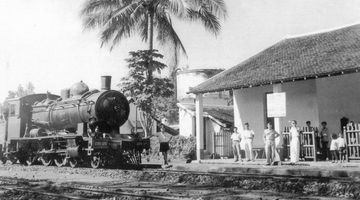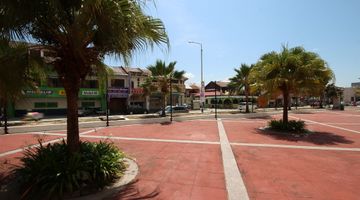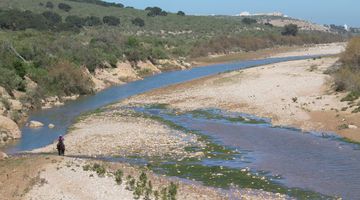Safe Travel in Laos – Best Traveller's Tips
Laos can be considered one of the safest destinations in Asia with a violent crime rate close to zero, especially against western tourists. This doesn’t mean that inconveniences cannot happen, but using your common sense and following the few advices that we’re about to give you, we are sure you will enjoy your trip without worrying too much about dangers, scums and annoyances.
Crime against tourists
Violent crimes against tourists are highly unlikely to happen and almost unheard of in the recent years. We can safely say that you have way more chances to get involved in a violent assault in any big city in the western World than anywhere in Laos.
That said, travelling along the route Vientiane – Luang Prabang was considered highly risky until few years ago because of the conflict between the Hmong ethnic group and the Laos government. Attacks to markets and buses were frequent but everything stopped in 2006 with the surrender of the insurgents as part of an amnesty program. In March 2016 however a Chinese bus has been the target of a shooting on the same route (highway 13). As a result of that 6 people has been injured and 1 killed. A few other accidents happened after that, all of which targeting Chinese people and embassies all around the World have issued warning suggesting their citizens not to travel on this route. Although the reasons of the attacks are still not clear, it looks like that it has nothing to do with the old Hmong situations, and racial issues (a large Chinese community seems to illegally work in the region) might be the reason of the attacks.
Even if not common, minor crimes such as pickpocketing and bags lifting occasionally occur and it’s something tourists should be aware of, especially in the cities of Vientiane, Vang Vieng and Luang Prabang. When riding a motorbike avoid to keep your bag with valuables in the front basket, since there have been few reports of tourists having them stolen when stopping at a traffic light. Use the safety box if your hotel has one, otherwise don’t leave in the room anything valuable, particularly in the cheaper places. As a general rule, don’t keep all your credit cards, money and passport together in the same bag.
Popular scams
Laotians are honest and trustworthy people, and scams are still less more common than in other countries in South East Asia. However the growing number of tourists has also caused a rise in the number of dishonest people trying to make a living out these illegal practices. This is a list of the most common ones.
Motorbike scam
There has been several reports of people being accused to have seriously damaged the motorbike they’ve rented and have been asked crazy money to fix the damage. In some other case the motorbike have been stolen while it was locked with the padlock given by the rental shop and again thousands of dollars have been asked as a compensation. The problem is that the shop usually keeps the passport as a deposit and refuses to give it back. A few simple precautions can save a lot of money. Rely on a legit bike rental and if not available ask your guesthouse for suggestions. Take pictures of the scooter at the shop before you start using it, focusing especially on the damaged parts. Refuse to leave the passport as a deposit. You can leave photocopies and tell them you need the passport for a visa extension at the immigration office. Check the contract you sign and be sure there’s a theft insurance and no fees are applied if the motorbike breaks down while you’re driving. If you leave the bike unattended buy a padlock to secure it and don’t use the one that the shop will give you. If you still find yourself in the situation of being scammed, call the tourist police.
Visa scam at the border
This will not cost you a lot in terms of money, but will make you feel the dumbest traveler in the World. If you get caught in it, don’t worry; many more people have been there before. When travelling to the border the tuk tuk or taxi driver will ask you if you have a visa already, and if not he will tell you that you need one. If you agree, he will stop to a fake visa office where for few dollars you’ll be sold a visa which is completely useless. This is particular common on the Thai side of the border, especially at Nong Khai/Vientiane Friendship Bridge. If the driver offers you the extra service tell him that you already have a visa and he will take you straight away to the border. You might also want to check out our dedicated page to find out more about visas.
Bus scam
This can come in various forms and seems to be particularly common in Vang Vieng. After purchasing a ticket for a long distance bus, people expecting to travel on a comfortable VIP bus end up spending 12 hours on a small minivan, a crowded local bus or they simply discover that there is no bus at all. It’s not really easy to avoid such a scam but a few advices will help you to minimize the risk. Never ever buy a bus ticket from a tuk tuk driver and never listen to their recommendations on travel agencies. Search the internet to find a reliable travel agency (trip advisor is a powerful tool). Many of the most popular guesthouses have a travel office attached. They are safe and can be used also if you sleep somewhere else. Be aware when you’re told that your bus will not leave from the bus station (if there is one). Double check with a different agency if it’s correct. If not, it’s probably a scam. If you’re not on a tight schedule the safer option is to buy the ticket directly at the bus station right before you leave. In this case you have to be prepared to change your plans since there are chances that the bus will be fully booked.
Exchanging money scam
Particularly common in Vientiane, it is easy to avoid. Never change your money on the side of the street and use only legal exchange establishments. How to be sure if the one where you’re entering is legit? If they refuse to change money without a passport it’s more likely that they’re not a scam.
Illegal charging at free attractions
When travelling by yourself especially in rural areas expect random people stopping you to ask for unnecessary fees for almost everything, from crossing a secondary bridge or enter a small cave. Unless you’re with a trustworthy tour guide there’s not really a way for a foreigner to understand if they are legit request or not.
Other dangers and annoyances
By far the biggest danger a foreigner has to face when travelling in Laos is a motorbike accident. Be extremely careful when you ride one, with no differentiation between main and secondary roads, or big cities and small towns. To a western eye it looks like there are no rules on the road and drivers seems to be too busy doing everything else other than paying attention at the road. To minimize the risks, drive like you never have the right of way and don’t expect other vehicles to stop even when they should.
Stray dogs are quite common everywhere in Laos and while most of the times they’re inoffensive, it’s not rare to see some of them becoming aggressive, particularly at night and when they’re in a pack. A firm voice should be enough to scare them away. If not the old trick of pretending to pick up a rock from a ground is valid in Laos like everywhere else in South East Asia. However if you’re entering a dark and isolated alley and you see a number of unfriendly dogs consider to go back and take an alternative route. In case you get bit, go to the closer hospital and clinic, and ask for an anti-rabies treatment even if you’ve been previously vaccinated.
Tubing is a fun river activity but it has gained a really bad reputations in the last few years due to the high number of young foreigners that have lost their lives or have been seriously injured in Vang Vieng. Unfortunately the town has become famous as a backpackers party scene where hundreds of young people would spend the day drinking and doing drugs while engaging in water activities such as tubing, swing robes, zip lines and slides. A very dangerous situation which luckily has been partially stopped in the last few months. All these activities can still be done but safety and controls have been finally implemented.
Drugs
Despite being largely tolerated in places like Vang Vieng, drugs in Laos is a really serious thing and even the small possession can lead to great problems. Opium and marijuana are considered exactly the same as heavier drugs and smoking can lead to immediate arrest and long term sentences. Serious offenses like smuggling or possession of more than one kilo can be punished with death penalty.
Health issues
Malaria is not widely spread but it’s still a risk in rural area. A treatment to prevent it might be advisable depending on your travel plan. Dengue fever is quite common especially during the rainy season. There’s not a vaccine against it, so the best thing is take measures to prevent mosquito bites. Use insect repellent multiple times especially after sunset, and try to wear a long sleeves t-shirt to protect yourself better. The same precautions are valid against Japanese Encephalitis. Even if it’s not widespread you might want to consider a vaccination against it to avoid any risk. Rabies vaccines are also advisable due to the presence of many stray dogs.
Stomach and intestinal infection are quite common among travelers and because of the very different diet there’s no way to completely avoid the problem. To minimize the risk drink only bottled water, avoid ice, don’t eat undercooked meat or raw vegetables and always peal any kind of fruit. Probiotics can help to prevent the problem when taken for a couple of weeks before departure.
Many embassies suggest vaccinations against hepatitis A, B and poliomyelitis. See your doctor or a travel clinic a few weeks before your departure to have a professional advice.
Hospitals and clinics
The hospitals and clinics in Laos are nowhere near a western acceptable standard but they’ll be more than enough to treat small injuries and inconveniences. For anything serious we would recommend to transfer to Thailand. Nong Khai and Udon Thani have both high standard medical facilities and Bangkok is less than 2 hours away by plane. A medical insurance can be a good idea but make sure it will cover the expenses of an emergency transfer to Bangkok. When in Vientiane the French Medical Center is your best bet to find a good doctor.




























